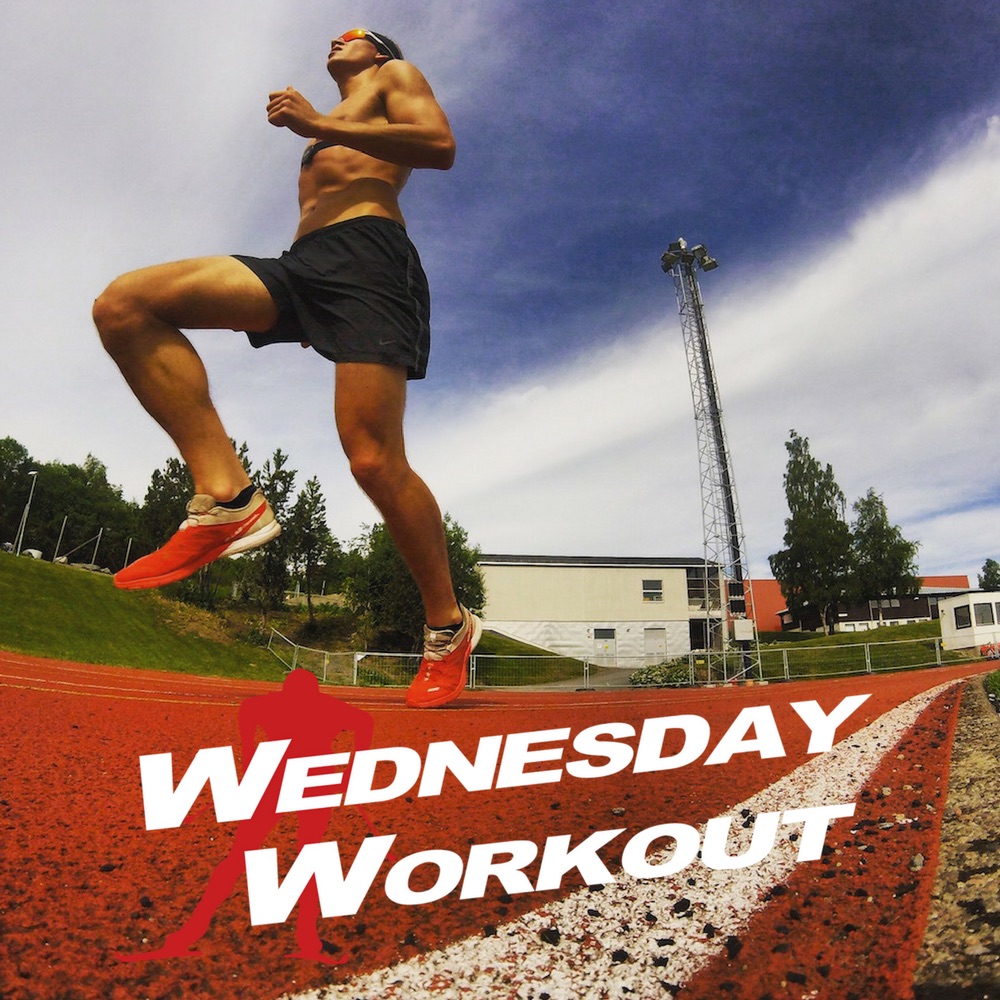
With spring in full swing and many skiers returning to training, this week’s Wednesday Workout is presented by University of Utah Ski Team member, Kevin Bolger. While most of his athletic accomplishments from this past season are nordic-based — he’s a NCAA All-American, the 2017 Rocky Mountain Intercollegiate Ski Association (RMISA) nordic MVP and the U.S. nationals classic sprint champion — most of Bolger’s spring workouts mean giving skiing a spring ‘break.’
***
It’s no secret that natives of Sweden, Norway and other overseas nations often abound in the top spots of the RMISA circuit. Two seasons ago, just three American men — Nick Hendrickson (formerly of U.S. Nordic Combined), Sawyer Kesselheim (now a guide for Para-Nordic skier Jake Adicoff) and Ian Torchia (a 2016/2017 U.S. Ski Team Development Team member) — reached the podium.

Not listed: Kevin Bolger.
In his junior season with the University of Utah, Bolger, of Minocqua, Wis., native came close. He placed fourth three times in 2016, missing third by 3.1 seconds at RMISA Championships. Still, by the end of Bolger’s third year on the college circuit, a podium remained elusive.
But that was no deterrent. Bolger, who turned 24 earlier this month, ended his senior year with six regular-season podiums (two of them wins), a top-10 finish for All-American status at NCAA Championships (despite frostbitten fingers), a team championship title (Utah’s first in 14 years), and his first national title.
“If someone would have told me all this going into the season, I would have been like ‘Bring it on. Let’s actually do it,’ ” Bolger said in a recent phone interview.
Even if that meant finishing his last his last regular-season RMISA race, the 20-kilometer freestyle in Anchorage, Alaska, with fingers white from frostbite and the inability to unclasp his ski bindings. Though he ended that day in fourth, his first time off the collegiate podium all year, the frostbite meant skipping RMISA Championships and spending nearly three weeks inside training on a treadmill.
“As fun as that sounds, it wasn’t the best,” Bolger joked of his indoor training.
“I would have loved to have finished individually a lot better at NCAAs,” he said of finishing 15th and 10th, respectively, at NCAA Championships, which took place this past March in Jackson, N.H. “I really wanted to double podium there as well, but circumstances didn’t allow it.”
While Bolger missed his individual goals of garnering a podium, his efforts at NCAAs were still ones well spent. Heading into the championship’s final competition day, Utah was just 34 points behind the University of Denver. With temperatures hovering just above the legal race limit of -20 degrees Celsius (-4 Fahrenheit) on the last day, Bolger raced to 10th in the 20 k freestyle mass start, earning All-American honors, helping the Utes to a championship title, and perhaps most importantly, finishing with all 10 fingers in tact.
“Part of me like, ‘Well, I need to do this, but then there was another part of me that was like my fingers aren’t 100 percent… I don’t want to lose any of them,” Bolger said. “The frostbite was a little hiccup to my season, but to finish that whole week as a team winning a national championship, that means a lot more to me and I know it means a lot more to a lot more people as well.”

With his college ski career behind him, Bolger is bent on finishing school, but also looking ahead to life outside of the classroom. He plans to continue skiing after graduating with a major in sociology and minor in health education. Though unsure which training group he’ll choose, he does have his sights set on the Olympics.
“The U.S. nationals title was an accomplishment for me,” Bolger said. “I mean I know I’m capable of throwing down on any given day, so being able to do it there on that stage was jaw dropping.
“This season was a super good motivator for me,” he continued. “And I know I can accomplish a lot more.”
Despite his building excitement, he is adamant that at this time of year, even full-time skiers need a break from skiing.
“Whether it’s going to play pickup basketball or pickup soccer, something beyond what nordic skiers tend to do. For me, that’s a breath of fresh air,” he said.
“If I can postpone getting on rollerskis for an extra day or two days a week,” he added. “That’s a very big goal of mine.”
The Workout
Pick a sport outside of skiing that you enjoy. Bolger recommends soccer, basketball or climbing, though it could be anything. Get out and play for 1-3 hours.
Bonus Points from Bolger:
- Gear Up with Games. Just because it’s not skiing, doesn’t mean it’s not beneficial. “I think skiers can get a little too wound up in full-on, 100-percent cross-country skiing, which is draining,” Bolger said. Games like soccer and basketball are valued by Bolger not only for the agility and coordintation they require, but for the more relaxed return to training they provide. “It’s all working toward a common goal, just getting back and moving again and getting ready for a new season.”
- Seek New Faces and Places. Bolger says spring is the time for switching it up. Working out at a new spot or with a new training partner can relieve any unnecessary pressure and help keep the return to training fun. “I just want to go run with somebody who I don’t normally run with or I don’t ever get to hang out with,” he said. “It’s a breath of fresh air.”
Gabby Naranja
Gabby Naranja considers herself a true Mainer, having grown up in the northern most part of the state playing hockey and roofing houses with her five brothers. She graduated from Bates College where she ran cross-country, track, and nordic skied. She spent this past winter in Europe and is currently in Montana enjoying all that the U.S. northwest has to offer.



